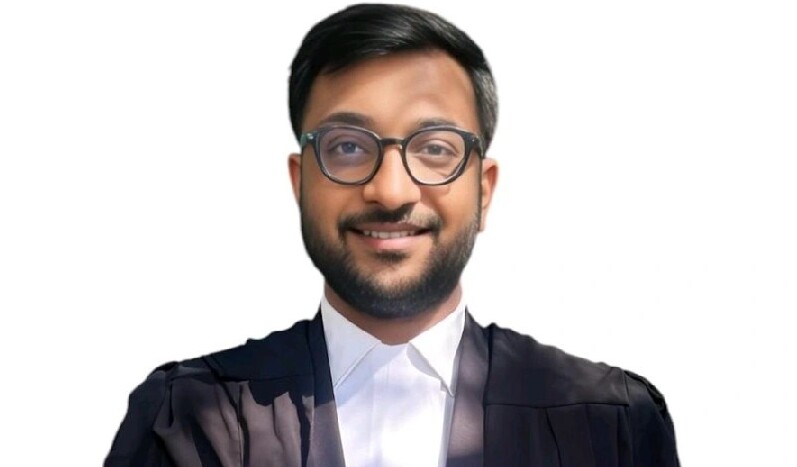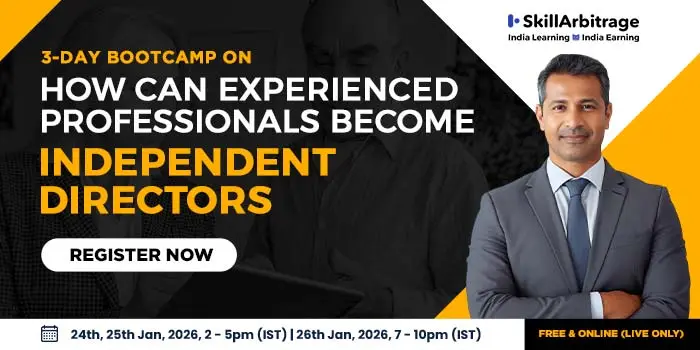This interview has been published by Anshi Mudgal and The SuperLawyer Team
With your specialization in real estate transactions and property registration, what initially drew you to this niche area of law, and how has your interest evolved over the years?
I have grown up in a family of lawyers, who are involved in this niche practice of law for the last 40 years. I am 4th generation in this side of practice. The environment, the discussions in family and social gatherings, watching of news roam around real estate and the law; the knowledge amongst citizens on the aspect of “how important is legal consultation before dealing in real estate transactions”; the growing real estate disputes in the family as well as in the market; the challenges faced by the citizens in the property registration process; the lack of future estate planning; etc., which gave me a good kick to enter into law, focus on this side and to scale up the practice to new boundaries.
Through your practice, you have often highlighted the gap between property registration and ownership rights. What are the most common misconceptions people have when dealing with property transactions in India?
From the very starting, I have strongly believed that people are unaware or ignorant of about the most important aspect when dealing with property transactions i.e. “Title Legal Due Diligence”. This is the “laying foundation”. The money which people pay to buy a property, what exactly is that money for – is it the physical structure or the land on spot? Practically speaking, for people these are the two aspects only but wait, that value is actually weighed from “title ownership documents” which people execute and get registered. And that’s the major misconception prevailing amongst people. Even law clearly says, “Buyers beware”. If there is a discrepancy in the documents, the value you paid for that property is nothing more than a zero.
Another related misconception is that people believe drafting a document when dealing with property is “basic and regular and can be drafted on a set performa”, but no, there is no set performa prescribed anywhere in law. Any such document is a “contract” amongst the parties which govern their transaction and has to be drafted on case-to-case basis and on specific circumstances surrounding the entire transaction, overall considering the law.
As the Founder of Legal Assist, a digital platform dedicated to property and business legal services, what inspired you to establish your practice, what were the key challenges you encountered in building it, and how do you envision technology transforming the future of property law practice?
Since many years now, the property registration appointment process has been made online, which is not only cumbersome but time taking too. It is not easy for a layman to take an appointment for registration. Further, we daily see the growing disputes arising in real estate transactions and business running. We further see the irregularities and unprofessional surroundings in the conveyancing field of practice of law.
All this triggered me to develop an online platform where I can render my knowledge on the issues circumventing the real estate industry & transactions, property registrations, business industry & transactions, to help them and to make them cautious of their legal rights, obligations and safeguards. The major key challenges were to not be able to cover “all aspects/ issues” since they are vast in nature and the other was to actually make people believe in “what are the most important aspects” in real estate and business transactions.
Technology today is the key source to research and development, a way by which people can now know, read, understand the aspects and issues in real estate and business transactions. Moreover, technology is the source to transparency and accountability, as by way of technology, things are not far away to come under one roof and better control of the government, assuring people more safety, trust and “ease of doing business”.
Your work involves complex areas such as estate planning, inheritance, wills, and succession disputes. What are the most pressing issues clients face in matters relating to inheritance, and how do you guide them through emotionally sensitive cases?
The most pressing issues I see are the disputes arising among the legal heirs after the death of deceased person who died intestate or without any future planning or without informing about his/ her assets to his/ her legal heirs and further, disputes arising in cases even where a deceased left a WILL/ any other testament.
Our approach of guidance is focussed initially on amicable settlement through mediation and consultation and if not this, by suggesting an equitable outcome, after considering the law from all four corners and the circumstances in hand, in a manner which rules out future disputes.
Estate and succession planning is often overlooked until a dispute arises. What practical steps do you believe individuals should take early to avoid future litigation?
Life is so uncertain these days. The most important aspect which I feel today is for a person to have a must is to initially have a broad family discussion amongst all members and align amicably whatever a person owns amongst his/ her family members. Then I believe in an equalization policy amongst members. If all the members accept this discussion, the family shall execute an Memorandum of Family Settlement incorporating the contents of such amicable understanding. Further, members, in such case or otherwise if family amicable understanding is not arrived at or possible, shall compulsorily make a testament/ WILL for writing down their wish in “clear terms” to be followed by each member after the death of the testator.
If there’s less tunning amongst the family members and the above aspect cannot be worked out, then the best possible way is to distribute the assets during the lifetime only so that the respective beneficiary holds the same without any claim or objection from others.
As someone who started with internships at leading law firms and later built independent practice, what lessons from those formative years still influence your approach to law and property related disputes?
Clear understanding of law and being upgraded with current legal precedents; using the tool of mediation and conciliation; not merely focussing on making money but alongside guiding the client with result oriented approach. However small the matter or dispute may be, 100% efforts and hard work shall always be put.
Property and inheritance laws are constantly evolving with new judicial precedents and legislative changes. How do you stay ahead of these developments, and what recent trends do you see shaping this field in India?
My approach is to give daily an hour or more in watching the news, studying current market scenarios, blogs, judgments. By this, I am able to incorporate and utilize this knowledge in my practice practically.
The upcoming centralized digitalized unique platform where property registration, all connected data such as data from Municipal Corporation/ Development Authority etc. will be inter-connectedly available and will be incorporated with ease of doing business policy of the government. The development of digital courts for NI Act cases, MSME Samadhan Portal, Pre-litigation process in commercial cases, Mediation Act, etc. are great initiatives of the government for early disposal of recovery matters. By such initiative and upcoming legal developments, people are becoming more aware about their rights and obligations.
With such a diverse practice covering real estate, inheritance, litigation, and consultancy, what advice would you give to young lawyers who want to build a specialized yet well-rounded career in property and succession law?
Thorough understanding of the real estate market and laws covering this industry is a must. The initial aspect is to be able to practically understand the “trends” of “disputes” in industry, thereby doing research in the light of actual circumstances and find out all the possible solutions to the problem and then picking up the best reasonable one. What is the best approach “practically” must be the concern always.
Get in touch with Deepanshu Garg –





No comment provided.